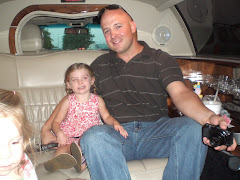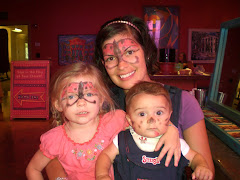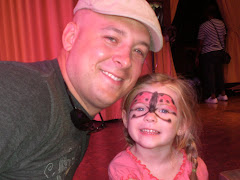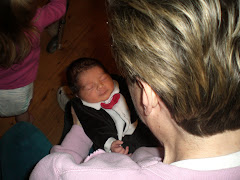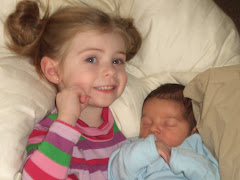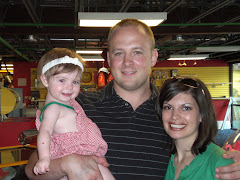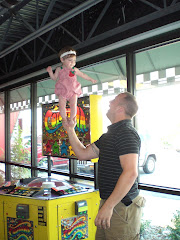10 Ways to Help Your Kids Stand Up to Peer Pressure
“If Johnny jumped off a bridge, would you do that also?” Peer pressure. We all experience it as children and as adults. The company we keep has a great say in the type of people we are. Thus, it’s highly important we surround ourselves with friends who bring us up. Who enlighten. Challenge us to be better. Not the kind that drag us down. The kind that lower our standards and take us places we should not venture. Your child faces tremendous peer pressure on a daily basis. To smoke, drink, do drugs, cheat on school work, have sex and a myriad of other issues. Acknowledge the battle they are in and take steps to help give them the armor they require to win the war. Here are just a few tips to get you started:
“If Johnny jumped off a bridge, would you do that also?” Peer pressure. We all experience it as children and as adults. The company we keep has a great say in the type of people we are. Thus, it’s highly important we surround ourselves with friends who bring us up. Who enlighten. Challenge us to be better. Not the kind that drag us down. The kind that lower our standards and take us places we should not venture. Your child faces tremendous peer pressure on a daily basis. To smoke, drink, do drugs, cheat on school work, have sex and a myriad of other issues. Acknowledge the battle they are in and take steps to help give them the armor they require to win the war. Here are just a few tips to get you started:
1. Eyes Like A Hawk
Constantly observe the habits and behavior of your child. Know him better than he knows himself. Abrupt changes in dress or attitude could signal trouble. Maybe your straight-laced son will begin dressing head to toe in all black. Possibly he will start using curse words in your presence. It could be more subtle differences. Newly-formed friendships are almost surely at the root of the change. Children, of course, go through phases. No need to overreact at every turn. However, always have hawk-like eyes and be on top of trouble the minute it shows up.
2. Meet The Crew
Your daughter’s friends are very important to her. So they should be very important to you as well. That means taking a vested interest. Make her friends feel welcome in your home. Talk to them when possible. Feeding them is a very good way to make that happen. Everybody talks when breaking bread. Offer to drive them where they want to go. The car is another good place to start conversations. The more they talk, the more you learn.
3. Meet The Parents
Going upon the same theory, make an effort to know the parents of your child’s friends as well. Throw a backyard party. Invite all the children and parents as well. Do they share your same values, beliefs and convictions? Establish an open communication. If problems arise, you will then feel more comfortable bringing it up.
4. To Sleepover Or Not To Sleepover
All kids enjoy sleepovers. They make forts. Stay up later than they normally do. Generally have a whole lot of fun. Awesome. What else is going on? If your daughter is sleeping over at her bff’s house, how do you really know? Are they watching movies you would not approve of? Talking about things that are new and beyond her young ears? Before allowing a sleepover, make sure you know the child and her parents. Peer pressure thrives in this unlikely environment.
5. Maintain Proper Influence
You are not his friend. You are his parent. There is a major difference. So many parents fall into the trap of wanting so much to be liked by their children. They give up influence in the process. Of course, you want a fun and loving relationship. As long as it does not impede on your ability to have the final say. Many a great parent has heard the words “I hate you” as the child storms up the staircase. It’s hurtful and hard to take. However the reply is always, “You will thank me later.”
6. Family Virtues
“If you don’t stand for something, you’ll fall for anything.” Great country song. Your family should have a set of standards that all are expected to live up to. Choose 5-10 virtues that you consider vital. Instruct your children in them and be sure to lead by example. Make it a matter of family pride. “It doesn’t matter how the family down the street does it, this is how we do it.”
7. Opportunities To Teach
Our world today provides more than enough chances to point out good and bad behavior. We have televisions. High speed Internet. Our mobile phones are now mini-computers. We are never without instant access to any type of news, sports or entertainment. That is a whole lot of influence on everyone in the family. If you are watching a show with your son that portrays a desirable quality, point it out. If you are listening to a song with your daughter that has lyrics glorifying loose behavior, point it out. Counteract the bad influence with discussion and other options.
8. The Big Picture
People have a tendency to believe their own behavior does not affect others. We feel small in a giant world. Completely untrue. Try teaching your children to see the bigger picture. Pose questions to them such as, “What if everyone shoplifted like your classmate Richard?” “What if everybody cheated on their tests?” “How would these things affect society?” Give your kids the ability to understand how they affect the world and not just themselves. It builds wisdom and strong character.
9. Concern For Others
Children certainly can be and will be cruel. Vicious at times. Teach empathy to your child. A concern for the feelings and well-being of others. A child that has these qualities is much less likely to follow the pack at any cost. They will understand the damage being done and stand against it. Society needs leaders who bring out the good. People who stand for justice. This starts by teaching empathy.
10. Unique Purpose
Most children that fall victim to destructive peer pressure have lower self-esteem. It’s normal to feel lost as a teenager. A group that shows acceptance and understanding is very attractive. Criminal gangs all over the globe recruit young souls based solely on this knowledge. Do not let this be your child. We are all created with a unique purpose. Every single person has much to offer this world. Help your child discover his or her path. Discover talents that bring out who they truly are. A child with self-confidence and moral strength is nearly impossible to corrupt when guided with love and care.


